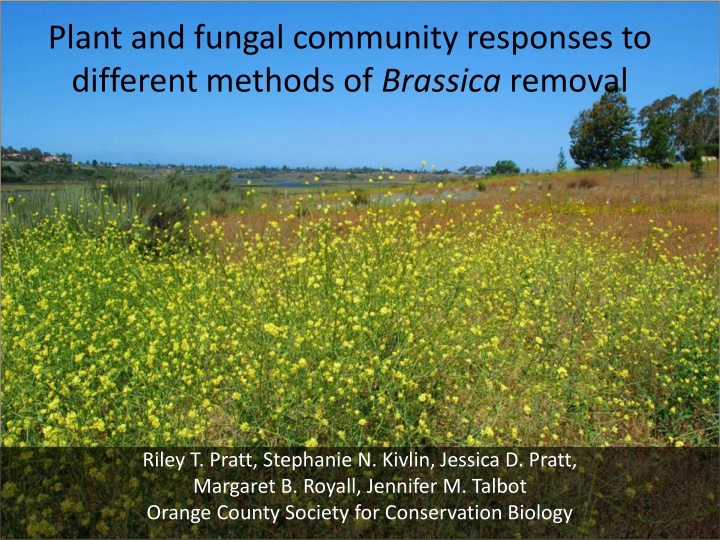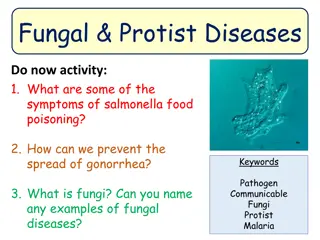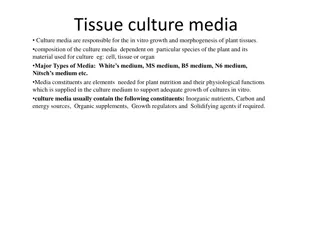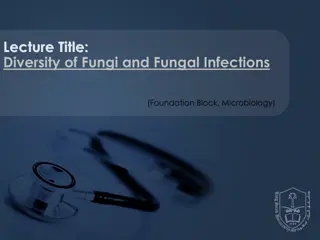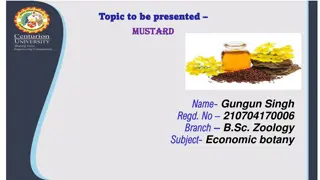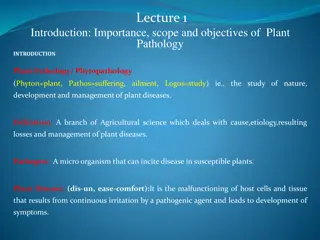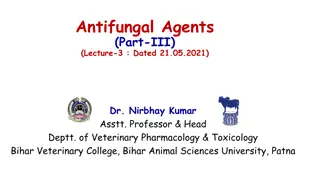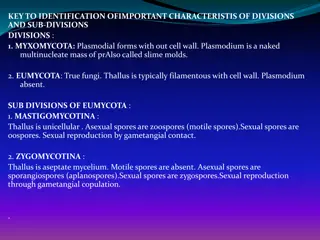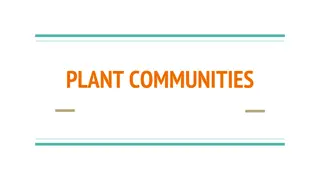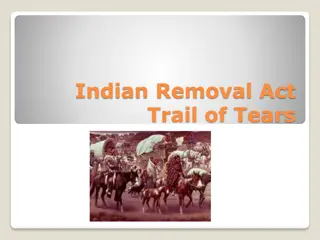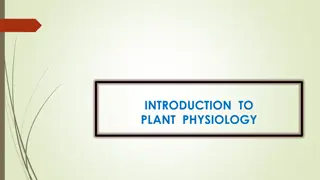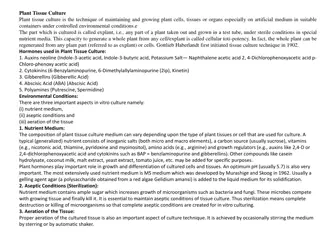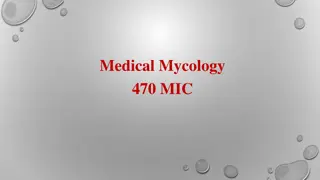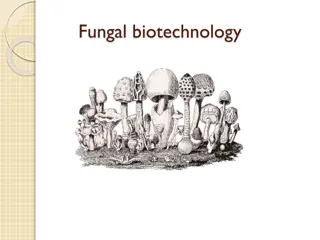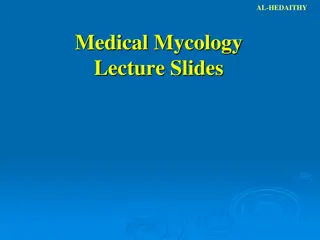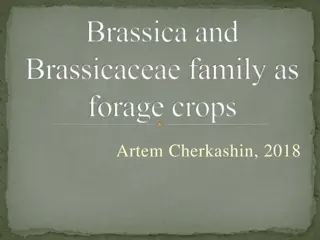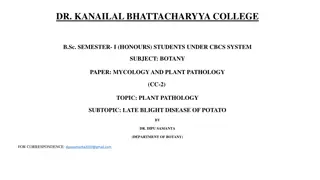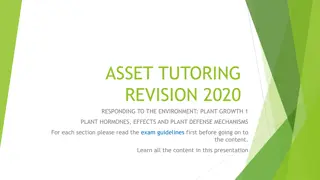Impacts of Brassica Removal on Plant and Fungal Communities
Study on methods of Brassica removal in Coastal Sage Scrub ecosystems, evaluating effects on plant and fungal communities. Results show differences in vegetation cover, species composition, and fungal biomass with various removal techniques like herbicide, mowing, and hand-weeding.
Download Presentation

Please find below an Image/Link to download the presentation.
The content on the website is provided AS IS for your information and personal use only. It may not be sold, licensed, or shared on other websites without obtaining consent from the author.If you encounter any issues during the download, it is possible that the publisher has removed the file from their server.
You are allowed to download the files provided on this website for personal or commercial use, subject to the condition that they are used lawfully. All files are the property of their respective owners.
The content on the website is provided AS IS for your information and personal use only. It may not be sold, licensed, or shared on other websites without obtaining consent from the author.
E N D
Presentation Transcript
Plant and fungal community responses to different methods of Brassica removal Riley T. Pratt, Stephanie N. Kivlin, Jessica D. Pratt, Margaret B. Royall, Jennifer M. Talbot Orange County Society for Conservation Biology
www.ocscb.org Speaker Seminar Series Field Trips Restoration Projects & Research
4.8 ACRE SLOPE COASTAL SAGE SCRUB NATIVE GRASSLAND INVASIVES: BRASSICA AND ERODIUM SPP.
Effects of Brassica Invasion on Ecosystems Alter structure and composition of coastal sage scrub (CSS) Disrupt native fungal communities on which many CSS plant species depend
Establishing experimental Brassica removal plots 4 treatments x 4 reps. = 16 plots Treatments: 1. Herbicide (2% glyphosate) 2. Mow 3. Hand-weed 4. Control Treatments applied in Mar & Dec 2009 and Dec 2010 Responses Measured (Spring 2010-2012): Percent cover of all plant species Fungal hyphal length in soil
Research Questions How do different methods of Brassica removal impact: 1. 2. 3. 4. Coverof Brassica species? Overall cover of native and exotic vegetation? Plant species composition? Fungal biomass in soil?
March 2010: Handweeding suppresses Brassica and promotes native plant cover more than controls Removal Treatments Native cover: F3,15 = 3.93, P=0.036; Brassica cover : F3,15 = 8.13, P = 0.003; Non-Brassica exotic cover: F3,15 = 11.65, P < 0.001
Mowing & handweeding Brassica and the native Deindandra fasiculata Removal Treatments MRPP T = -7.74, A=0.415, P < 0.0001
Brassica removal increases fungal biomass Removal Treatments F3,15 = 3.343, P = 0.038
March 2011: Handweeding suppresses Brassica and promotes native plant cover more than controls Removal Treatments Native cover: F3,15 = 0.8, P=0.511; Brassica cover : F3,15 = 2.22, P = 0.138; Non-Brassica exotic cover: F3,15 = 4.29, P =0.028
January 2012: Handweeding suppresses Brassica and promotes native plant cover more than controls Removal Treatments Native cover: F3,15 = 0.13, P=0.9397; Brassica cover : F3,15 = 7.2, P = 0.005; Non-Brassica exotic cover: F3,15 = 7.86, P =0.004
Summary Herbicide Reduced all plant cover types initially but currently has the highest cover of Brassica Initially increased soil fungi compared to the control Mowing Did not affect Brassica, native, or exotic plant cover Resulted in the greatest initial increase of soil fungi Hand-weeding Most effectively reduced Brassica cover and increased native plant cover. Initially increased soil fungi compared to the control
Acknowledgements Research, design, data collection: Steve Allison, Bob Reed, Kathleen Treseder, and Numerous OCSCB volunteers Collaborators: Matt Yurko (CCC), Jeff Stoddard (DFG), County of Orange Park and Rec Funding: Sonoran Joint Venture Foundation, Newport Bay Conservancy www.ocscb.org
Soil fungi increase when soil nitrate declines Mowing Soil hyphal length (mm/g dry soil) Hand-weeding Herbicide No treatment % Change in soil NO3- after 1 month
% Change in soil NO3- after 1 month Herbicide No treatment Mowed Hand-weeded
Pre-treatment 1 month 3 months Soil NO3- (ug N/g soil) Herbicide No treatment Mowed Hand-weeded
